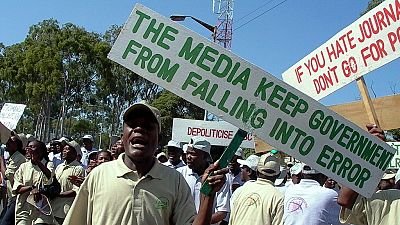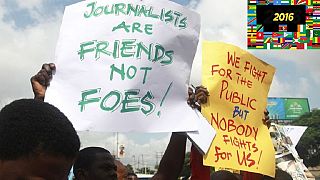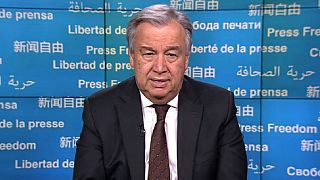Press freedom
As the world marks World Press Freedom day on Wednesday, African journalists are facing a new trend of attack – social media threats, harassment and trolling – online.
Gone were the days when media freedom was mainly attacked by governments and political entities that use threats of closure, arrests and court action to stifle press freedom.
In 2017, the attacks have shifted online with 48% of African journalists harassed on social media.
This statistic emerged from a survey released by South Africa-based communication training company Fray Intermedia on Wednesday.
Most of the journalists that suffered social media harassment were from Zimbabwe (67%) with the least from the Democratic Republic of Congo as a result of the low rate of internet access, the report said.
“Slightly more men had been harassed on social media. Both sexes were likely to experience trolling, but more women had been sexually harassed and more men threatened,” it added.
The online survey covered 307 African journalists from 36 countries who use social media to engage with their audience.
All the journalists were found to be regularly engaged on social media platforms with 95% of them engaged professionally.
“The overwhelming majority (89%) of journalists were required to be on social media as part of their job. Two thirds who used social media had both personal and professional accounts,” the report said.
29% of the journalists surveyed believed there were political motives behind the harassment. Most of these journalists were from Cameroon, Nigeria and Mozambique.
On the occasion of this year’s World Press Freedom Day, the United Nations Secretary-General, Antonio Guterres has called for an end to the crackdown on journalists who he described as a ‘‘voice of the voiceless.’‘
The international day was proclaimed by the UN General Assembly in 1993 following a Recommendation adopted at the 26th Session of UNESCO’s General Conference in 1991.














02:03
Muhammadu Buhari's legacy: higlight of his presidential tenure
01:01
Kenya: Visa-free travel now available for many African and Caribbean countries
02:02
Funeral held for Kenyan blogger whose death in police custody sparked violent protests
Go to video
Paraguayan town celebrates vibrant Kamba Ra'anga festival with masks, fire and tradition
01:34
Police officers accused of shooting Nairobi hawker remanded in custody for 15 days
01:47
Chinese city of Xuchang is world's biggest producer of wigs